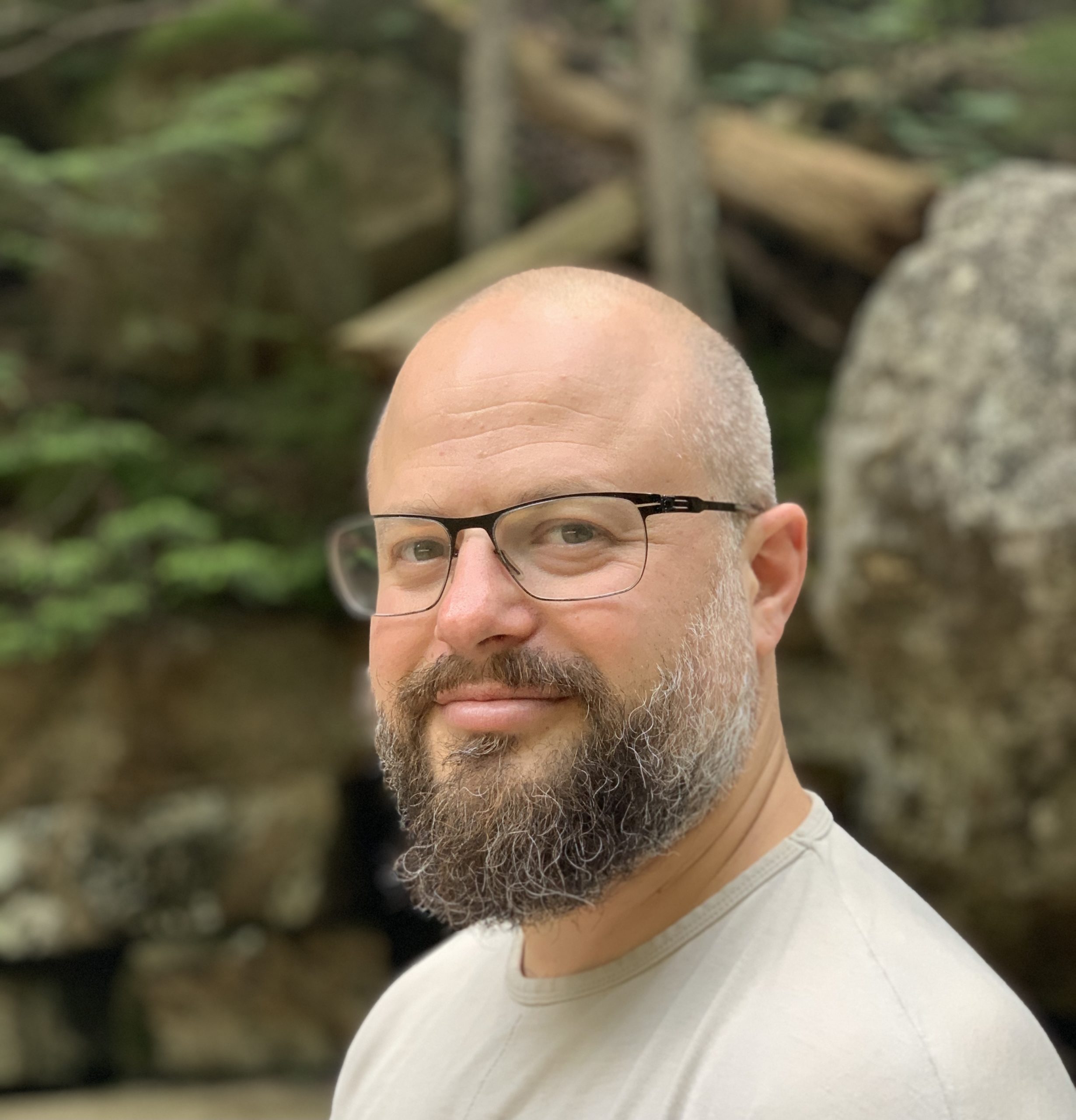Session Resources
Session Leaders

Adam Lobel, PhD, practices at the intersections of ecodharma, meditation, and psycho-social political transformation. He is a scholar-practitioner of philosophy and religion, a Guiding Teacher for One Earth Sangha, an environmental justice activist working to resist the petrochemical buildout in his region, and a professor of Ecopsychology. Adam served as a teacher (acharya) in the Shambhala tradition from 2005 until resigning in 2018. A speaker on ecology and spirituality at the United Nations, he leads ecodharma workshops called “Silent Transformations,” has taught in the Ecosattva Training, and is a Greenfaith fellow. Adam’s teachings focus on Great Perfection Tibetan Buddhism, modern phenomenology, and inoperative studies (Heidegger, Foucault, Agamben). He has a longstanding interest in progressive contemplative education and transformative pedagogy. Adam teaches a critical style of contemplative training that seeks to avoid enclosure in neoliberal mindfulness while still disclosing effortless awareness. He is currently developing what he calls “four fields” of contemplative practices for potential worlds. For more on his teachings: https://www.releasement.org.
Opening the Space
We invite you to open your engagement with each session (or group gathering, if applicable) by practicing a Living Earth Acknowledgment. A Living Earth Acknowledgement can nourish our relatedness and avail us to truths beyond domination. Incorporating our ecological nature as well as the calls of justice, it is an exploration, not a formula, to recognize and remember. Through practices like this, we are setting the conditions for shifting minds that are conditioned by domination into more skillful ways of seeing, speaking and acting.
Living Earth Acknowledgment and Prayer
Meditation is an integral part of the EcoSattva journey. If you do not have a meditation practice, now is the perfect time to start. We invite beginners and seasoned practitioners alike to view this guided meditation grounded in our relationship with Earth, created especially for EcoSattva Training participants by our guiding teacher Catherine McGee.
Dharma Offerings
To view videos in full screen, click the expand button ![]() on the lower right.
on the lower right.
Inquiries
We offer here a set of inquiries and group practices that support this step in our journey. Consider these suggestions and feel free to customize, replace and augment. But we strongly suggest that you explore at least one inquiry with each session.
Below are this session’s inquiry questions in bold, followed by a short commentary. We invite you to gently hold these questions. If this form of exploration is new to you or you would like a refresher, you can learn more about inquiry practice here.
- How do I experience hope and fear about where we’re headed?
As you open to what emerges from deep uncertainty, what hopes and fears are present? Explore the ways in which you hope for ecological resilience and justice. Explore the ways you fear ecological loss and social collapse. Without judgement, get a sense of how you hold these hopes and fears. - What might be blocking the emergence of my compassionate action from emptiness?
The pattern we are following in the Ecosattva journey moves from sensing into the reality of ecological and social injustice, down into a place of groundless uncertainty, and then re-arises as genuine, compassionate action. When you explore the possibilities of emergence and action, what feels most challenging? What are obstacles or doubt in yourself that you may face in creating and discovering a way forward? How can we avoid moving too quickly beyond the groundlessness, and preserve a relationship with unknowing and emptiness? - How do I long to emerge? What is calling me forward?
What longing and aspiration wants to emerge from the groundlessness? How do I experience this longing? What might be calling for my devotion? Is there a call or a mystery that I long to hear and how might I listen better to hear it? How might we attune our lives and actions to this call?
Format for group inquiry: Liberating Structures is an excellent resource and we especially like 1-2-4-all and Conversation Café.
Supplemental Resources
- More on Otto Scharmer’s Four Levels of Listening
- Adam refers to this story told by Charles Eisenstien in The Fertile Ground of Bewilderment
